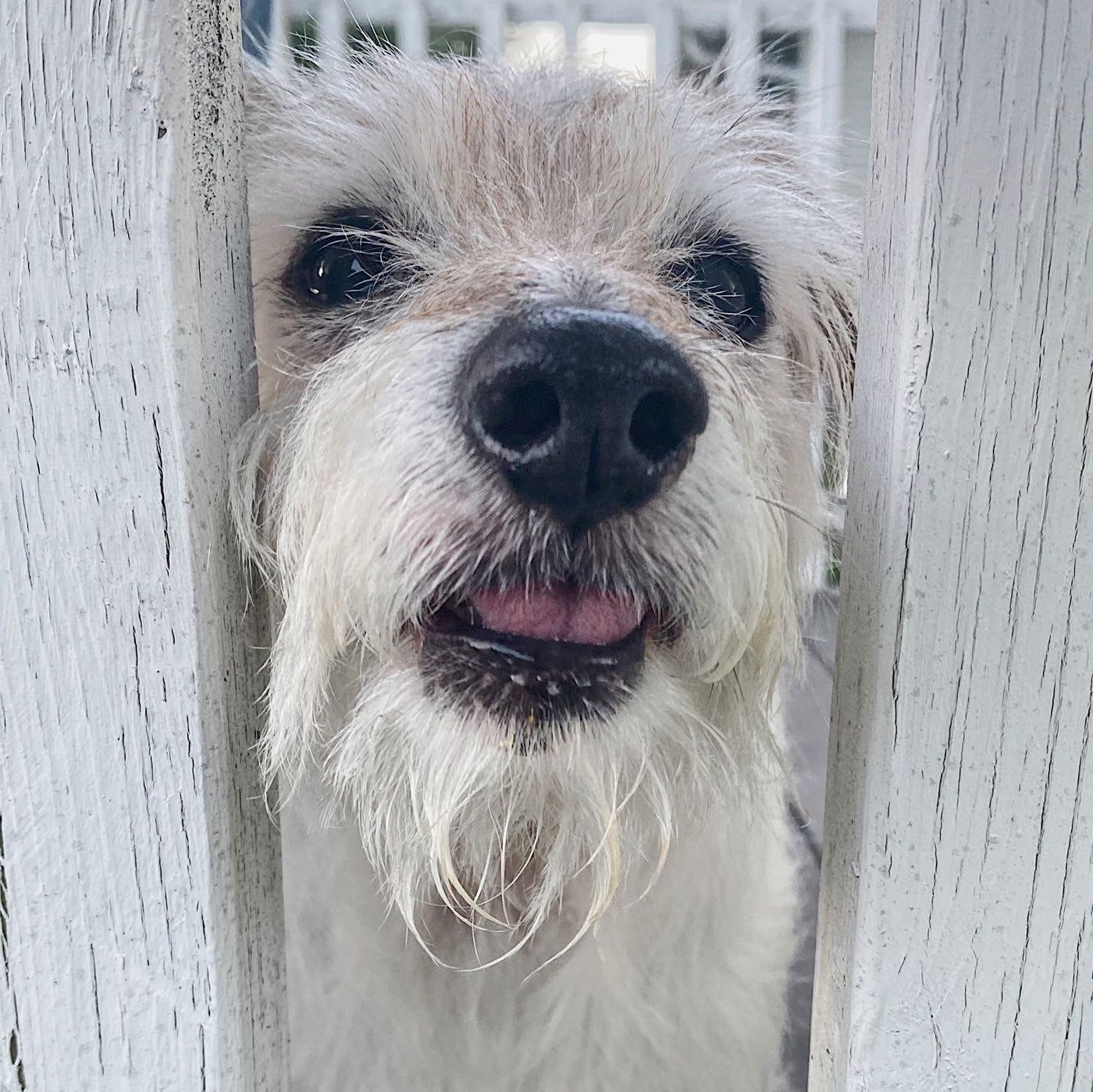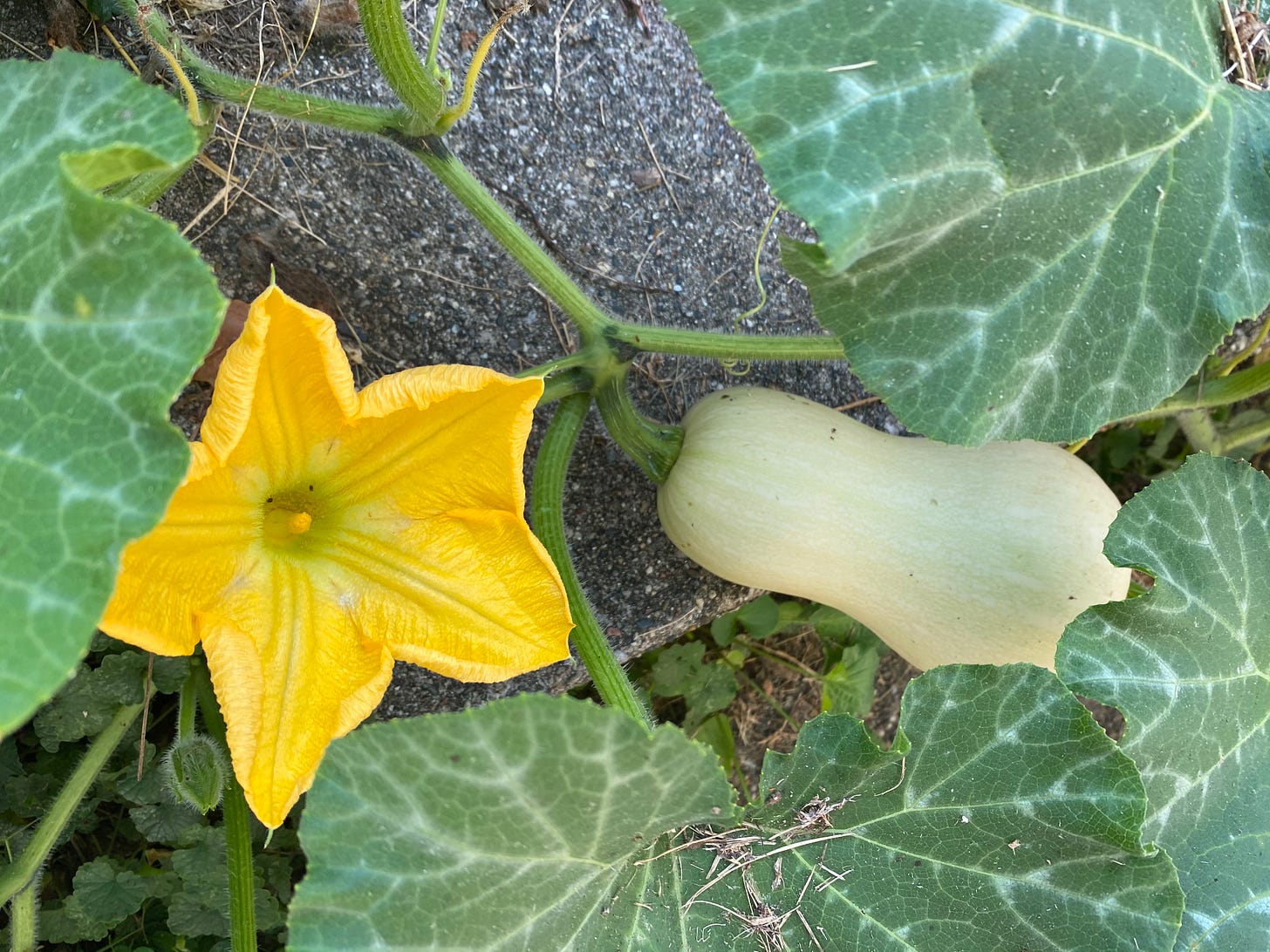From Whence Cometh Our Hope?
Some fragmented reflections on optimism vs. hope, going high vs. going low, pizza, garden volunteers, and other random things
The 85th Day after Coronatide*
Grand Rapids, Michigan
Greetings, friends!
2020 can just go step on a thousand Legos.
This year has been beyond absurd, with its mix of grief and loss, sorrow and inhumanity. Just in the month of August, there’s been so much. I’m thinking of Iowa, still recovering from the derecho. I’m thinking of Texas and Louisiana as Hurricane Laura barrels through. I’m thinking of my native California and its sun-baked hills and its gorgeous, ancient redwoods—burning, burning, burning. I’m thinking of Kenosha, Wisconsin, and Jacob Blake. I’m thinking of that massive explosion in Beirut and the flooding in India and Bangladesh. I’m thinking of American politics, and the insistent messaging from one party this week that America is great again; that freedom is under threat, as if everyone were truly free; and that marginalized people are doing better than ever, even as so many of those people testify otherwise. I’m thinking of the ongoing toll of COVID-19; polarized discourse and the struggle to hear one another well; the lack of empathy and the dearth of holy imagination.
Honestly, I’m not optimistic. But I am hopeful.
In his book To Heal a Fractured World, Jonathan Sacks, the chief rabbi emeritus of the British Commonwealth, articulates the difference. “Optimism and hope are not the same,” Rabbi Sacks writes. “Optimism is the belief that the world is changing for the better; hope is the belief that, together, we can make the world better. Optimism is a passive virtue, hope an active one.”
Where does our hope come from? Or, to ask the question in a more old-school way that echoes a psalm that some of you might recognize, from whence cometh our hope?
Hope won’t come with a change in the weather or a shift in the winds. It isn’t a byproduct of the cuteness of pandas, though this old video offered me some respite last week, or from snuggles with Fozzie, though he does offer me some comfort.

Look at this face! Ugh. Here, Fozzie is frustrated he can’t fit through the railing of the deck.
Hope won’t be a function of policymaking, though hope might inspire some changes in policy. It isn’t rooted in any human leader, and certainly not any president or his administration, despite the claims by one in particular who has said that he is the only one that matters, that he is the only one who can fix things, that only he can do this.
Last week, we watched some of the Democratic National Convention. I’m not a Republican, nor am I a Democrat; neither party fully represents my values, and I’m committed as a matter of conviction not to align with either. But I was moved by the speech given by Michelle Obama, who is forever the First Lady of my heart. Four years ago, she spoke her now-famous words: “When they go low, we go high.” Last week, she returned to that statement. “Over the past four years, a lot of people have asked me, ‘When others are going so low, does going high still really work?’” she said. “My answer: Going high is the only thing that works, because when we go low, when we use those same tactics of degrading and dehumanizing others, we just become part of the ugly noise that’s drowning out everything else. We degrade ourselves. We degrade the very causes for which we fight.”
It’s so hard to invest in restoration when you want retribution.
It’s so hard to be respectful when you’re not respected.
It’s so hard to be kind when you see so little kindness in the world.
Many days, my first impulse is not to move toward restoration, respect, or kindness at all. These days, I just want to throw things. And let me be clear that being kind and being nice are altogether different, the former being motivated by compassion and grace and the latter more by a reluctance to make others uncomfortable.
So how? Where does our hope come from? What is the source of the fortitude that has to be the foundation of going high?
Different people will offer different answers, and I know there are some who don’t believe Obama is right at all in her insistence on a higher path. While I agree with her, I guess I’m not convinced that we have it within us, not without some outside help.
In February 1958, the Rev. Dr. Martin Luther King Jr. wrote an article in the Gospel Messenger, a publication of the Church of the Brethren, entitled “Out of the Long Night.” The piece is a concise analysis and rousing call to action against injustice in which King makes a stirring case for nonviolence. It contains the famous line, “The arc of the moral universe is long, but it bends toward justice.”
That line is in quotation marks, King’s careful nod to the fact that these were not originally his words, even if he is now identified with them. Most likely, it’s a paraphrase of something said more than a century prior, by the minister and abolitionist Theodore Parker. What’s often forgotten is the context of King’s usage of that quote: “Those of us who call on the name of Jesus Christ find something at the center of our faith which forever reminds us that God is on the side of truth and justice. Good Friday may occupy the throne for a day, but ultimately it must give way to the triumph of Easter,” he wrote. “Evil may so shape events that Caesar will occupy a palace and Christ a cross, but that same Christ arose and split history into A.D. and B.C., so that even the life of Caesar must be dated by his name.”
In other words, King did not believe that we are the primary agents in bending the arc toward justice; God is. If it were up to humanity, I doubt it would happen. If it were up to me, I’m sure it wouldn’t, because I know my own petty heart and my own profound weakness. Instead, King asks the reader to recognize that holy work which God is already doing, even if it might seem nearly imperceptible to us at times. And then he reminds us of the invitation to participate in it. Only in that context does the countercultural call to go high make any sense. Only in that context am I capable of long-suffering love and true grace. Only in that context am I able to hope.
“It is this deep faith in the future that causes the nonviolent resistor to accept suffering without retaliation,” King continued. “He knows that in his struggle for justice he has cosmic companionship. There is a creative power in the universe that works to bring low gigantic mountains of evil and pull down prodigious hilltops of injustice... This is the faith that keeps the nonviolent resistor going through all of the tension and suffering that he must inevitably confront.”
I know I might sound a little preachy this week, but with all that’s been happening, meditating on tomatoes or musing on Fozzie’s lovable weirdness didn’t do it for me this week. The faith that King describes is the kind of faith I want. This is the kind of faith that will heal. This is the kind of faith that can change this country and transform this world.
What I’m Growing: It’s always intriguing to see what volunteers pop up in any given growing space. They remind me of my lack of total control, and that is not a complaint. In my community-garden plot, two random tomato plants have emerged, and in our little backyard, there’s a viny thing that has been sprawling since June. Finally, I think I know what it might be! Doesn’t that look like a butternut squash?

What I’m Cooking: We’re continuing our experiments with homemade pizza, still using Joe Beddia’s recipe for crust. Last week, we did two pies: One was a white pie (mozzarella + provolone) with Sungold tomatoes and basil from the garden; the other, a red-sauce pie with peppers and cipollini onions from the farmers’ market. Not terrible!

What I’m Reading: Former Archbishop of Canterbury Rowan Williams is one of my favorite writers on faith and ethics. Writing in the New Statesman, he makes an assertion I’ve never seen before: He says that our cultural denial of the reality of death is lying. It’s a compelling call to honesty and attentiveness and love amidst COVID-19: “A summons to faith, courage and energy in the face of death isn’t a call to heroics for the ego,” he writes. “It is an invitation to attend, to be absorbed in value, depth and beauty not our own. It is to recognize the gentle insistent pressure of a shared reality which tells us to make room for one another.”
What I’m Listening to: This has been a musically impoverished week. What are you listening to that helps stir your hope? What do you have on your playlist that might offer some encouragement?
One final note: Some of you know that I’m the co-host and co-curator, along with my friend Sarah Bessey, of the Evolving Faith gathering. If you know me and Sarah at all, you’ll know that we’re not “burn it all down” kind of people; we’re trying to hold onto hope, we’re kind of Jesus-y, we overuse metaphors like “wilderness” and “table,” and we just want the Church to be the good and life-honoring body it was called to be. We’re online this year, on October 2 and 3. We have a tremendous lineup of speakers, including Sherrilyn Ifill, president of the NAACP Legal Defense and Educational Fund; the authors and preachers Barbara Brown Taylor and Nadia Bolz-Weber; the writer and historian Kate Bowler, and about twenty other extraordinary humans. We hope you’ll join us. This year, I’ll be preaching the closing communion service. You can register here.
I’m so glad we can stumble through all this together, and I’ll try to write again soon.
All the best,
Jeff
*I’m counting from June 1, when my governor, Gretchen Whitmer, lifted Michigan’s stay-at-home order. Here in Grand Rapids, people are doing a decent job with their masks, and I’m thankful. Physical distancing and mask-wearing is not fun. But let’s keep trying, for the sake of our neighbors, because we’re still not through this yet.



